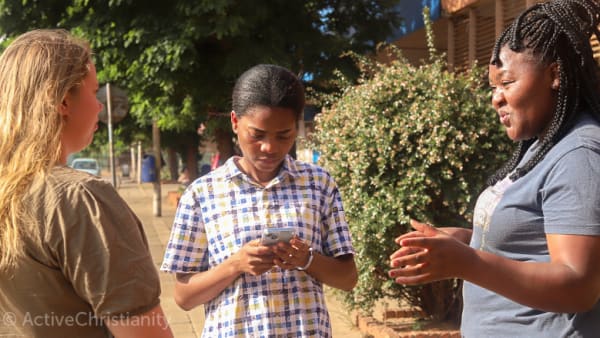What does the Bible say about love?
“He who does not love does not know God, for God is love.” 1 John 4:8.
When we think of love, it’s easy to think about good feelings. But real love is not dependent on feelings. It is about so much more than how I feel about someone. Whether it is romantic love, love for a member of my family, a friend, or a co-worker, very often people love others mostly based on what they can receive from them. But what do I do when it is difficult for me to love someone? How does the Bible tell us to love?
"Love is patient and kind. Love is not jealous, it does not brag, and it is not proud. Love is not rude, is not selfish, and does not get upset with others. Love does not count up wrongs that have been done. Love takes no pleasure in evil but rejoices over the truth. Love patiently accepts all things. It always trusts, always hopes, and always endures. Love never ends.” 1 Corinthians 13:4-8 (NCV).
So, what is love then? When I can do all these things no matter how my feelings are, no matter what the others have done or are doing, that is love. I do not feel loving when I am tempted to get angry, to be impatient, to seek my own comfort, to believe the worst, to give up on someone. But when I say “No” to these feelings and am patient, humble myself, accept others as they are, endure all things – that is true love. Love lays down its “life”, those natural reactions and demands that are a part of human nature. Love expects nothing in return.
“Greater love has no man than this, than to lay down one’s life for his friends.” John 15:13.
What does the Bible say about love? Loving first
“In this is love, not that we loved God, but that He loved us and sent His Son.” 1 John 4:10. It’s great if people love me, and I love them in return. That’s easy. But that does not mean that I have the love the Bible speaks about. God loved us before we loved Him, and we certainly did nothing to deserve that love.
What if someone has treated me badly? Where is my love then? Love gives, and not only to those who are good to us. It loves its enemies; it loves first. And it doesn’t stop loving if that love is never returned. It endures all things.
“But I say to you, love your enemies. Pray for those who hurt you. If you do this, you will be true children of your Father in heaven. He causes the sun to rise on good people and on evil people, and he sends rain to those who do right and to those who do wrong.” Matthew 5:44-45 (NCV).
What does the Bible say about love? Godly love
“If we say we love God, but hate others, we are liars. For we cannot love God, whom we have not seen, if we do not love others, whom we have seen. The command that Christ has given us is this: whoever loves God must love others also.” 1 John 4:20-21 (GNT).
If we don’t love our fellow men, we don’t love God. And if we love our fellow men just a little, we only love God a little. Godly love does not change according to circumstances. It stays the same.
We usually want the others to change. We feel that it is difficult to love people as they are and want them to be different. But that is not what the Bible says about love! It shows that we think more about our own happiness and comfort than about loving the others; we are selfish.
But what is love? Instead of hoping for the others to change, we need to find the sin in ourselves and cleanse it out, get rid of it. My self-interest, know-it-all attitude, pride, stubbornness, etc., the sin that I find in myself when I have to do with others in my life. If we cleanse ourselves from these things then we can bear, believe, hope, and endure all things from the others. We love them as they are, and we can pray for them out of a sincere Godly love and care for them.
No exceptions to love
And there are no exceptions. No: “This person doesn’t deserve it.” Jesus laid down His life for us, the greatest sign of how much He loved us. For we didn’t deserve it at all.
To love does not mean that we agree with someone’s sin, or that we say that everything they do is okay. No, it is to bear with them, to pray for them, to want the very best for them. It is doing something no matter how I feel. Then I can change from disliking them to having a real love for them. That doesn’t mean I can’t exhort them. To help them and turn them away from things that could be harmful to them, I can advise or correct them, but only when I do it out of a real care for them.
Love is what draws people to Christ. Goodness, kindness, gentleness, patience, understanding. How can someone feel drawn to Christ if they experience impatience, pride, suspicion, rudeness, hate, etc. from me?
We should pray to God to show us how we can get more true Godly love for the others. But I need to be willing to give up my own will and think of the others before myself.
“So these three things continue forever: faith, hope, and love. And the greatest of these is love.” 1 Corinthians 13:13 (NCV).




